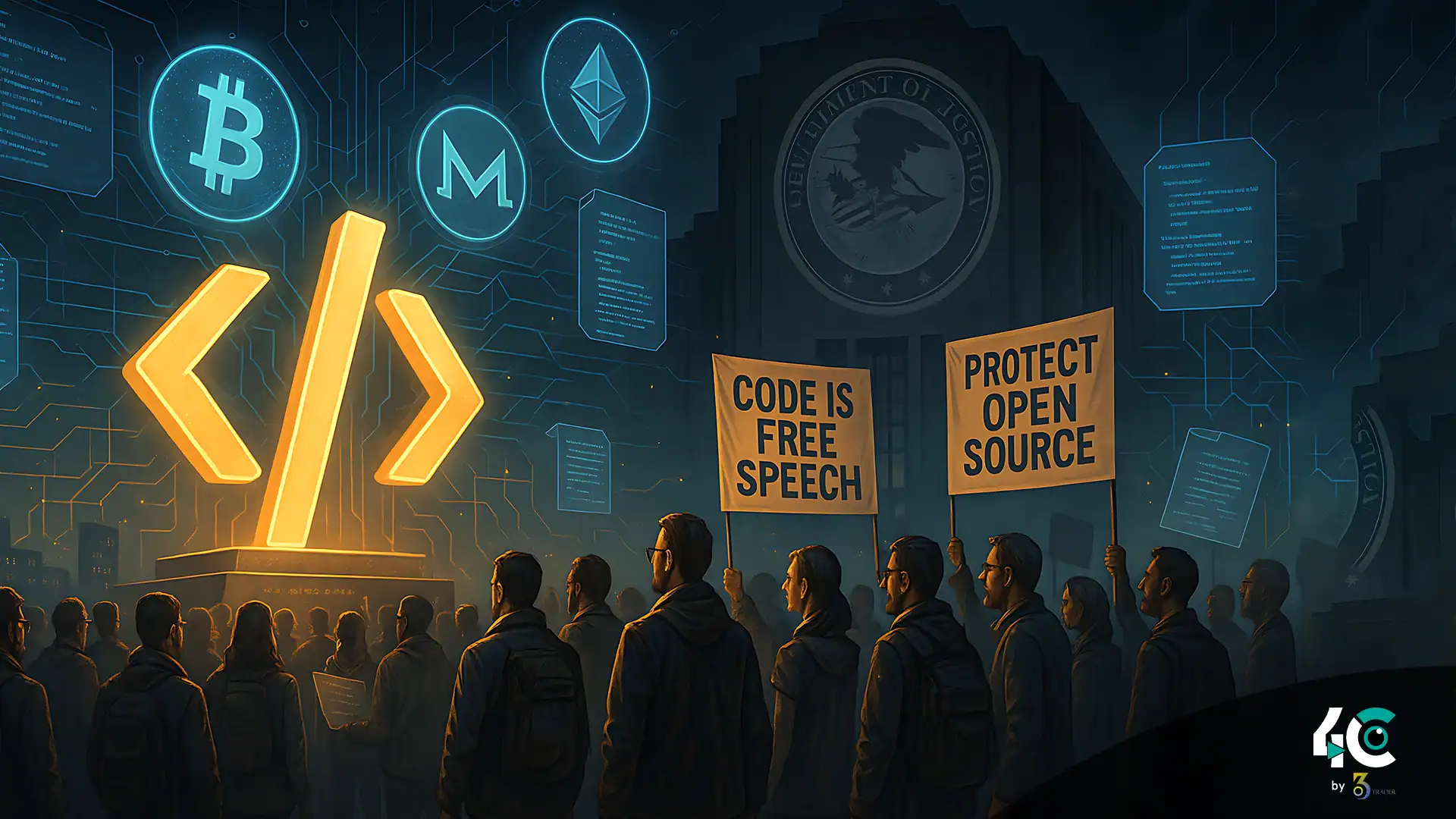Crypto Industry Challenges DOJ’s Interpretation
A strong coalition of crypto advocacy organizations has emerged to oppose the United States DOJ’s attempt to target open-source developers under money transmission laws. The heart of the conflict involves Michael Lewellen, a creator of a non-custodial DeFi protocol, which is software that allows the peer-to-peer transfer of crypto.
The Paradigm, the DeFi Education Fund, Blockchain Association, and the Crypto Council for Innovation filed an amicus brief this week defending Lewellen’s right to publish code without fear of prosecution. They argue that the DOJ is misapplying Section 1960 of Title 18, which was created to regulate unauthorized money transmitters.
Writing Code ≠ Transmitting Money
The brief warns that DOJ’s reading incorrectly assumes that publishing code is equivalent to transmitting funds. They liken the argument to suing a frying pan manufacturer for someone else’s cooking. Developers of non-custodial software don’t handle funds and therefore cannot be logically accused of sending money on behalf of users.
This interpretation, they argue, is causing growing legal uncertainty. Developers now fear that writing or releasing privacy-focused software or decentralized applications could put them at legal risk. As a result, many developers might pause their work or move it abroad, harming U.S. blockchain innovation and leadership.
Precedent and the Tornado Cash Trials
The crypto community is especially alarmed by the DOJ’s actions in ongoing cases like U.S. v. Storm and U.S. v. Rodriguez, which target Tornado Cash developers. These cases raise a critical question: Can the act of publishing open-source code be criminalized?
To protect developers and sustain innovation, the coalition is urging the court to proceed with the lawsuit. They believe only a declaratory judgment can clarify the law, affirm developer rights, and stop the misuse of litigation against neutral software creators.
Conclusion
The result of this case could establish a precedent for how open-source crypto development is regulated in the U.S. As industry leaders rally behind Lewellen, they make a clear statement: it’s not a crime to publish code. Unless the law draws a protective line, the U.S. risks losing its competitive edge in fintech and decentralized technology.



























